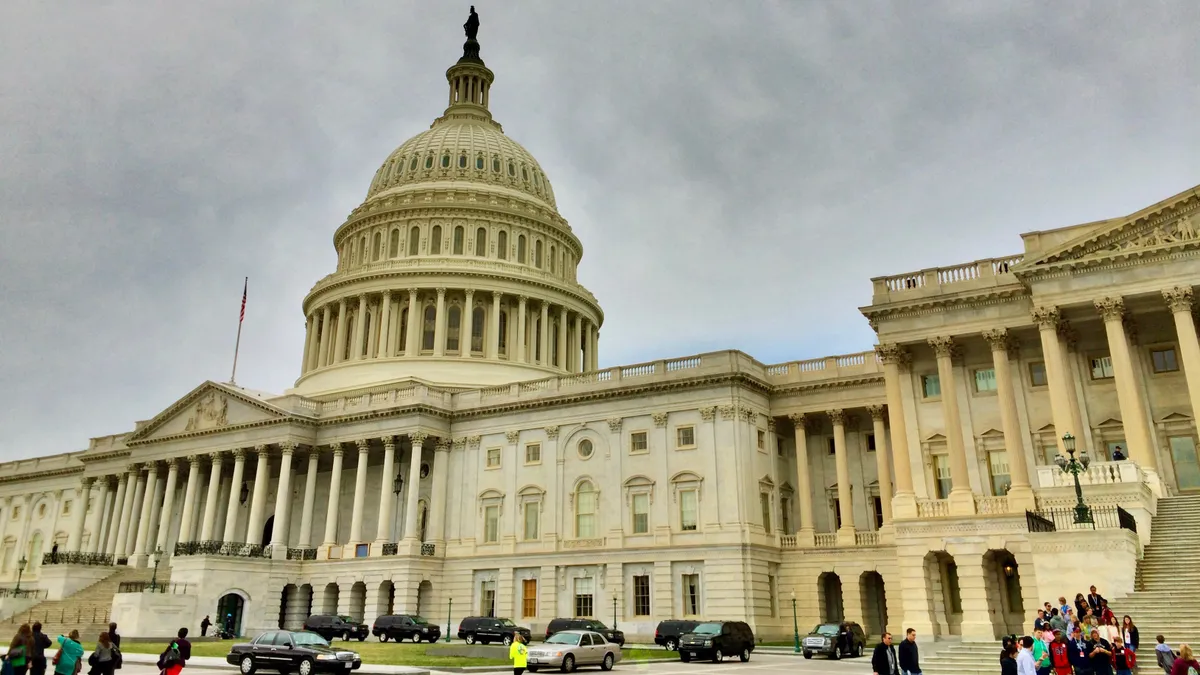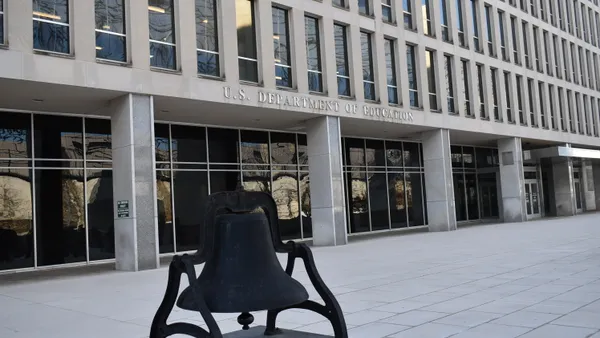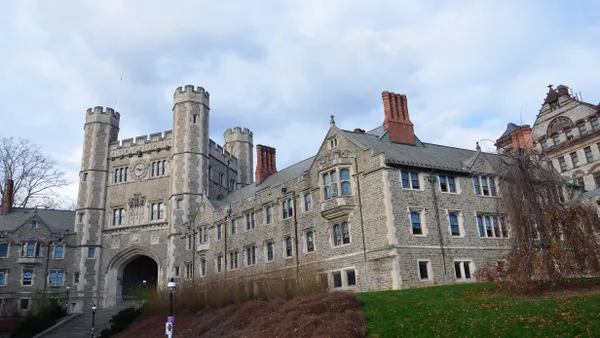Dive Brief:
- Proposed legislation from three House Democrats would codify and expand oversight of the process by which for-profit colleges convert to nonprofit status, a move several institutions have made in recent years.
- The For-Profit College Conversion Accountability Act would also require public notice about a potential conversion, treat the school as a for-profit for at least five years after its change is approved and establish an office within the U.S. Department of Education to oversee the deals.
- The bill follows a report from the U.S. Government Accountability Office that found issues with the way the department and Internal Revenue Service reviewed the transactions.
Dive Insight:
The Ed Department and IRS are meant to ensure the conversions don't unfairly benefit stakeholders. The GAO's review of 59 transactions occurring between January 2011 and August 2020 found indications the agencies weren't catching all potential conflicts of interest and recommended they ramp up their oversight processes.
The newly proposed legislation would update the Higher Education Act with more details about how the department should regulate these transactions. Though the agency already requires that such deals don't unfairly benefit insiders, spelling it out would help give the department more explicit authority when making a decision and let the private parties know what to expect, said Brian Galle, a law professor at Georgetown University, in Washington, D.C. Galle testified Tuesday during a hearing about the GAO's report.
The bill would require that "none of the core functions" of the institution applying for a status change "are under the control of, or subject to significant direction from" an entity that isn't a public college or other nonprofit, according to the legislative text.
Several institutions that have recently changed status separated from their former parent companies as part of the process, but their new nonprofit owners retained those firms as service providers. These include Kaplan University and Ashford University, which were bought by Indiana's Purdue University and the University of Arizona, respectively.
"Significant direction," according to the bill, would include if an employee or an owner of the for-profit entity is also a board member or executive at the resulting nonprofit college.
The department denied Grand Canyon University's status change request in 2019, citing the fact that its president is head of both the institution and its former parent company, which now provides services to the college, as a reason why.
Though the involvement of executives of a former for-profit in the resulting nonprofit can be abused, it can also be a positive, said Andrew Gillen, senior policy analyst at the Texas Public Policy Foundation. Gillen also testified during Tuesday's hearing. Gillen pointed out in an interview Thursday that the GAO report didn't audit any of the institutions to determine whether its status change unfairly benefited insiders. However, in two of three cases it reviewed in-depth, it found the potential for insider benefit.
"I would be skeptical of an effort to outlaw it completely," Gillen said.
Under the proposal, colleges that change status would be subject to regulations for proprietary colleges for at least five years after the conversion is approved. Status changes must be published in the Federal Register with time for a comment period before they can be finalized.
Galle thinks these changes will leave room for students and their advocates to weigh in. But Gillen said the five-year wait time would be excessive, noting there may already be a few years' time between IRS and Ed Department approval. The GAO report states colleges whose nonprofit conversions are approved face a probationary period of at least one to three years.
Schools seeking nonprofit status also would be banned from marketing themselves as a nonprofit until the department, the IRS and their accreditor and state have approved the change.
During Tuesday's hearing, a GAO representative said the department has already started to enforce such a requirement.
The bill also calls for the department to create an office to oversee the conversions. The department already reviews and determines for-profit schools' requests to be considered as a nonprofit and to continue to participate in federal financial aid programs following the change.
Rachel Tripp, a spokesperson with Career Education Colleges and Universities, a trade group that represents for-profits, criticized the bill in a statement emailed to Higher Ed Dive on Thursday. While the conversions should be subject to oversight, "this legislation goes beyond what is needed to address this narrow issue," Tripp wrote, noting relatively few for-profit schools have converted in the last decade.
However, many of them are large schools. Purdue and the University of Arizona each inherited tens of thousands of students through their acquisitions of for-profit colleges.
And critics of the deals say some of the institutions don't change all that much once they convert and therefore put students at a disadvantage by being more focused on profit generation than a nonprofit college is meant to be. A set of for-profit colleges sold to the nonprofit Dream Center collapsed shortly after the sale. Among the institutions was Argosy University, whose resulting closure one of the bill's sponsors said was an impetus for the proposal.















